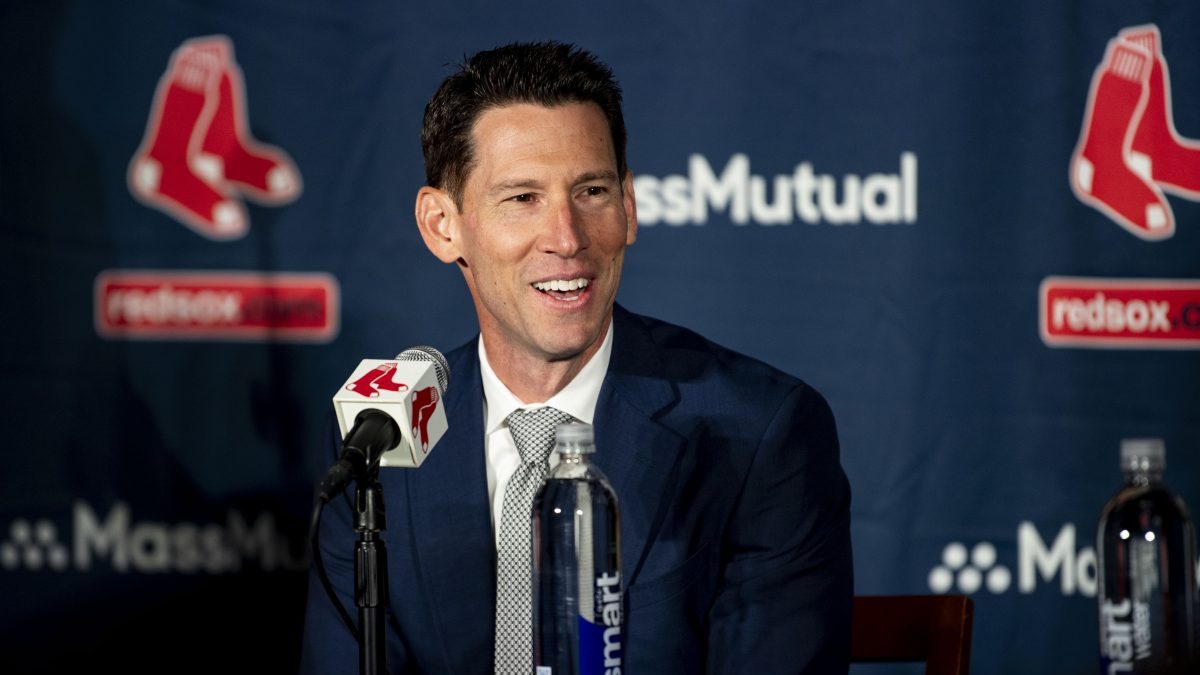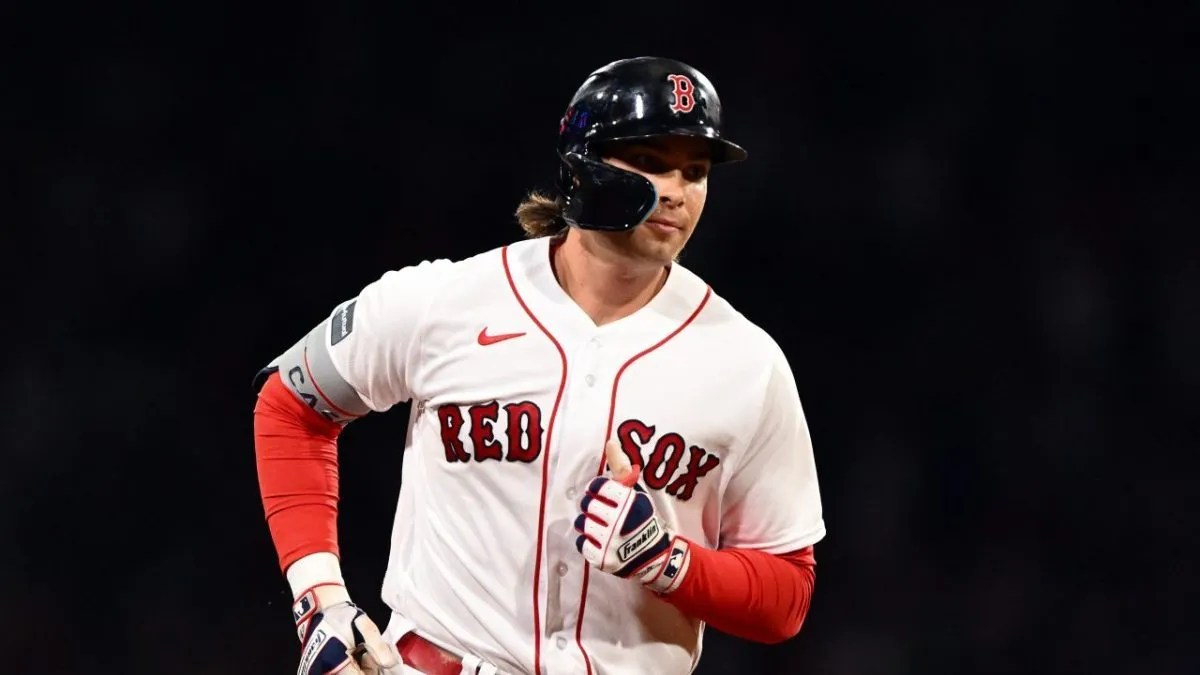Baseball saved its season with a pitch clock. Now it needs to apply that concept to the sleepy offseason.
Free agency started last week, but you'd never know it. Whereas the NBA and NFL kick off player movement with feeding frenzies requiring blanket coverage, baseball is content to poke its head out the door in a bathrobe before pulling the shades and crawling back into bed.
Given the excitement generated by deadlines that now exist between every pitch, it shouldn't take a visionary to recognize the winter needs a similar boost. Former Red Sox president Dave Dombrowski has long advocated for an offseason signing deadline, and perhaps this winter will finally spur MLB to action, because we're looking at potentially even less action than usual.
Stay in the game with the latest updates on your beloved Boston sports teams! Sign up here for our All Access Daily newsletter.
For that, we can thank Shohei Ohtani, the domino that crushes all others. Until the two-way star signs the largest contract in the history of pro sports, the big spenders must keep their books clear on the chance that he chooses them and their half a billion dollars. His list of suitors reportedly includes the Red Sox, though there are plenty of reasons to be skeptical, including Ohtani's stated desire to play for a winner, his seeming preference to stay on the West Coast, and John Henry's perceived (un)willingness to spend.
In a normal world, Ohtani would sign by next month's winter meetings in Nashville, allowing the rest of the offseason to proceed. That might actually be the case, but it's unlikely to spur a flurry of action, because the patterns have been well-established.
Teams don't want to sign anyone for fear of setting or overshooting the market. And players hesitate over concerns they'll leave money on the table. The result is something out of SNL's old "Night at the Roxbury" skit, with a bunch of Brooks Brothers bros incapable of finding a dance partner, despite their performative gyrations.
That's a problem, because selling your league is now a year-round endeavor. The NFL created an entire network for this very purpose, which is why the Combine became a made-for-TV event and the draft lasts for like a week. The NBA, meanwhile, has mastered the art of offseason buzz. Every superstar that changes teams – from LeBron James to Kevin Durant to Damian Lillard – becomes a where-were-you-when-you-heard moment.
Baseball once similarly captivated our attention, but it has been 20 years since the Winter of A-Rod made the Red Sox and Yankees the top story in Boston even with the Patriots rampaging towards their second Super Bowl.
More Red Sox coverage
Over the ensuing decade, agents like Scott Boras recognized that the longer they waited, the more their clients could earn. The low point undoubtedly occurred in 2019, when the two marquee free agents dragged their decisions into spring training. Manny Machado finally signed with the Padres on Feb. 21, and Bryce Harper didn't land with the Phillies until March 2. Pursuits that should've been exciting and compelling instead became battles of attrition worthy of The Revenant – we don't care where you go, please just sign and put us out of our misery.
Last offseason actually unfolded pretty reasonably, giving us a flurry of activity at the winter meetings, where Xander Bogaerts bolted for $280 million from the Padres, the Phillies struck a big-money deal with Trea Turner, and Justin Verlander (temporarily) left the Astros for the Mets. A couple of weeks later, the Yankees signed Aaron Judge to a $360 million extension, and there's no reason the rest of the offseason couldn't have been wrapped up by New Year's.
Instead, the Red Sox were still signing everyday players in January, from Justin Turner to Corey Kluber to Adam Duvall. Other former All-Stars who didn't sign until 2023 included Andrew Benintendi, Aroldis Chapman, Evan Longoria, and Craig Kimbrel, and again – this was a good year.
A deadline could change that, compressing three months of waiting into one month of excitement. Rather than start free agency five days after the World Series, baseball could take a page from the NFL and NBA and spend the month or so leading into the winter meetings as a build-up before firing the starting pistol. Otherwise, we're just left with hurry up and wait, a concept the game has finally, belatedly legislated out of existence.
The changes on the field paid off in obvious ways – games got shorter, attendance grew larger, and the sport regained some relevance. The next step should be ensuring the offseason doesn't kill that momentum.



